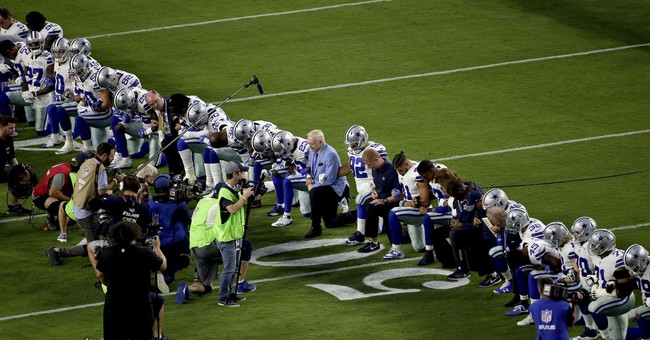SB17-267
Sustainability Of Rural Colorado
Concerning the sustainability of rural Colorado.
Session:
2017 Regular Session
Subjects:
Capital Construction
Education & School Finance (Pre & K-12)
Higher Education
State Revenue & Budget
Transportation & Motor Vehicles
Section 17 of the bill also
requires CHASE to seek any federal waiver necessary to fund and, in
cooperation with HCPF and hospitals, support the implementation, no
earlier than October 1, 2019, of a health care delivery system reform
incentive payments program. Sections 2, 3, 6, 7, 11, 13, 15 through 20, 22, and 32 make conforming amendments, with section 32
extensively modifying FY 2017-18 appropriations to reflect the repeal
of the hospital provider fee program and the creation of CHASE. Section 34 specifies that the effective date of sections 2, 3, 6, 7, 11, 13, 15 through 20, 22, and 32
of the bill is July 1, 2017, and that those sections do not take
effect if the centers for medicare and medicaid services determine that
they do not comply with federal law.
Section 11 of the bill permanently
reduces the Referendum C cap by reducing the FY 2017-18 cap by $200
million and specifying that the base amount for calculating the cap for
all future state fiscal years is the reduced FY 2017-18 cap. As is the
case under current law, the reduced cap is annually adjusted for
inflation, the percentage change in state population, the qualification
or disqualification of enterprises, and debt service changes.
Section 24 of the bill specifies
that for any state fiscal year commencing on or after July 1, 2017, for
which revenue in excess of the reduced Referendum C cap is required to
be refunded in accordance with TABOR, reimbursement for the property tax
exemptions for qualifying seniors and disabled veterans that is paid by
the state to local governments for the property tax year that commenced
during the state fiscal year is a refund of such excess state revenue.
The exemptions continue to be allowed at current levels and the state
continues to reimburse local governments for local property tax revenue
lost as a result of the exemptions regardless of whether or not there
are excess state revenues. Section 27 prioritizes the new TABOR
refund mechanism ahead of the existing temporary state income tax rate
reduction refund mechanism as the first mechanism used to refund excess
state revenue.
Section 12 of the bill requires the
state, on or after July 1, 2018, to execute lease-purchase agreements,
including associated certificates of participation (COPs), for up to $2
billion of eligible facilities identified collaboratively by the state
architect, the office of state planning and budgeting (OSPB), and state
institutions of higher education for the purpose of generating funding
for capital construction projects and transportation projects. The
lease-purchase agreements must be issued in increments of up to $500
million in FYs 2018-19, 2019-20, 2020-21, and 2021-22. The first $120
million of lease-purchase agreement proceeds from the FY 2018-19
issuance must be used to fund capital construction projects with most of
that amount being dedicated for funding of level I, II, and III
controlled maintenance projects. The first $120 million of
lease-purchase agreement proceeds from the FY 2019-20 issuance must be
used for capital construction projects as prioritized by the capital
development committee. Remaining proceeds are credited to the state
highway fund and are required by section 31 to be expended to
fund state strategic transportation project investment program projects
that are designated for tier 1 funding as 10-year development program
projects on the department's development program project list, with at
least 25% of such proceeds being expended to fund projects that are
located in rural counties. At least 10% of such proceeds must be
expended for transit purposes or for transit-related capital
improvements.
The maximum term of the lease-purchase
agreements is 20 years, and the maximum total annual repayment amount
for lease-purchase agreements is $150 million. Lease-purchase agreements
must be paid, subject to annual appropriation by the general assembly
or annual allocation by the transportation commission, first from up to
$9 million from the general fund or any other legally available source
of money, next from up to $50 million of legally available money under
the control of the transportation commission solely for the purpose of
allowing the construction, supervision, and maintenance of state
highways to be funded with the proceeds of lease-purchase agreements,
and last from up to $85 million from the general fund or any other
legally available source of money.
Sections 5 and 8 of the bill
specify that an academic facility is not eligible for controlled
maintenance funding if it is acquired or constructed, or, if it is an
auxiliary facility repurposed for use as an academic facility, solely
from a state institution of higher education's cash and operated and
maintained from such cash funds and if the acceptance of construction or
repurposing occurs on or after July 1, 2018.
Section 29 of the bill, in
accordance with previously granted voter approval, increases the rate of
the retail marijuana sales tax, which is currently 10% and is scheduled
under current law to decrease to 8%, to 15%, effective July 1, 2017. Section 30
holds local governments that currently receive an allocation of 15% of
state retail marijuana sales tax revenue based on the current tax rate
of 10% (i.e. the amount attributable to a 1.5% tax rate) harmless by
specifying that on and after July 1, 2017, they receive an allocation of
10% of state retail marijuana sales tax revenue based on the new rate
of 15% (i.e., the same amount attributable to a 1.5% tax rate).
Of the 90% of the state retail marijuana sales tax revenue that the state retains for state FY 2017-18:
- 28.15% less $30 million stays in the general fund;
- 71.85% is credited to the marijuana tax cash fund; and
- $30 million is credited to the state public school fund and distributed to rural school districts as specified in section 4.
- 15.56% stays in the general fund;
- 71.85% is credited to the marijuana tax cash fund; and
- 12.59% is credited to the state public school fund and distributed to all school districts as specified in section 4.
Section 9 of the bill requires each
principal department of state government, other than the departments of
education and transportation, that submits an annual budget request to
the OSPB, when submitting its budget request for FY 2018-19 to the OSPB,
to request a total budget for the department that is at least 2% lower
than its actual budget for the FY 2017-18. The OSPB must strongly
consider the budget reduction proposals made by each principal
department when preparing the annual executive budget proposals to the
general assembly for the governor and must seek to ensure that the
executive budget proposal for each department for FY 2018-19 is at least
2% lower than the department's actual budget for FY 2017-18.
Section 10 of the bill eliminates
FY 2018-19 and FY 2019-20 general fund transfers to the highway user tax
fund required by current law. The eliminated transfers are in the
amounts of $160 million on June 30, 2019, and $160 million on June 30,
2020.
Section 14 of the bill specifies
that on and after January 1, 2018, for pharmacy and for hospital
outpatient services, including urgent care centers and facilities and
emergency services provided under the 'Colorado Medical Assistance Act',
HCPF rules that specify the amount of copayments for such services must
require the recipient to pay:
- For pharmacy, at least double the average amount paid by recipients in state fiscal year 2015-16; or
- For hospital outpatient services, at least double the amount required to be paid as specified in the rules as of January 1, 2017; except that
- For both pharmacy and hospital outpatient services, the amount required to be paid by the recipient may not exceed any specified maximum dollar amount allowed by federal law or regulations as of January 1, 2017.
Section 25 of the bill terminates
an existing temporary income tax credit for business personal property
taxes paid that is available only for income tax years commencing before
January 1, 2020, one year early so that it is available only for income
tax years commencing before January 1, 2019. Section 26
replaces the terminated temporary credit with a more generous permanent
income tax credit for business personal property taxes paid on up to
$18,000 of the total actual value of a taxpayer's business personal
property.
Section 1 of the bill makes a
legislative declaration that all provisions of Senate Bill 17-267 relate
to and serve and are necessarily and properly connected to the General
Assembly's purpose of ensuring and perpetuating the sustainability of
rural Colorado.








